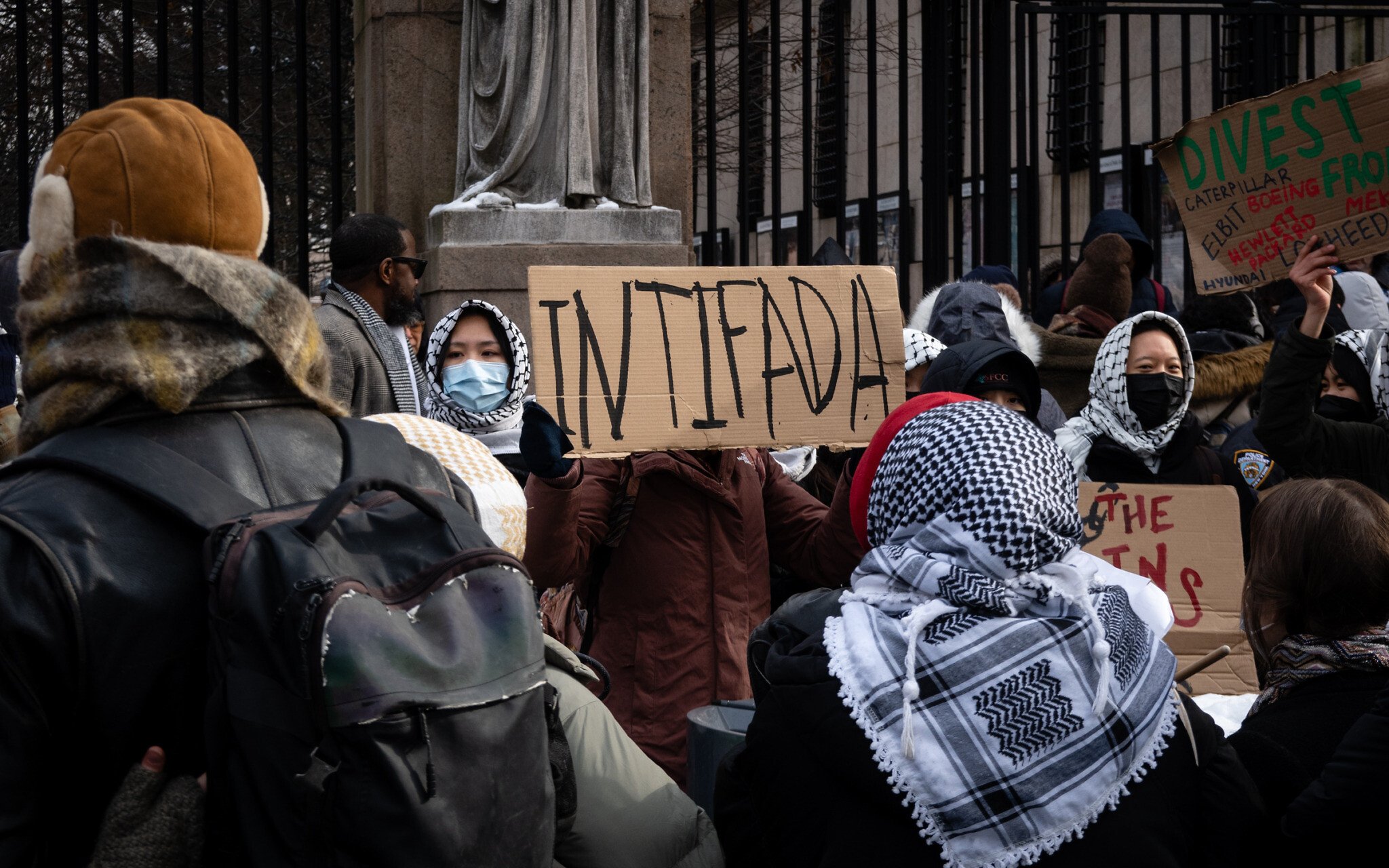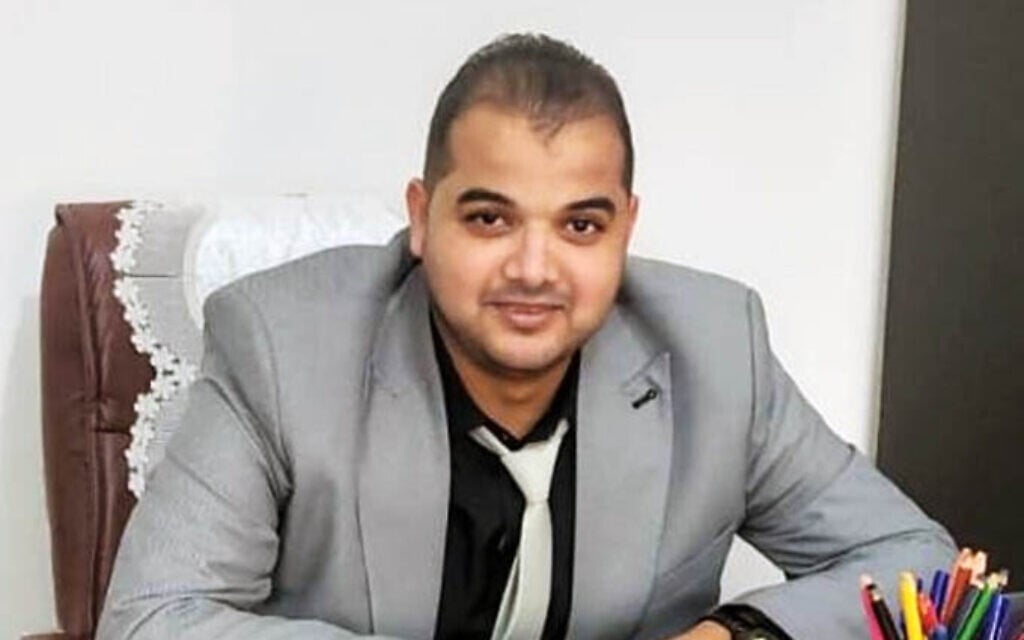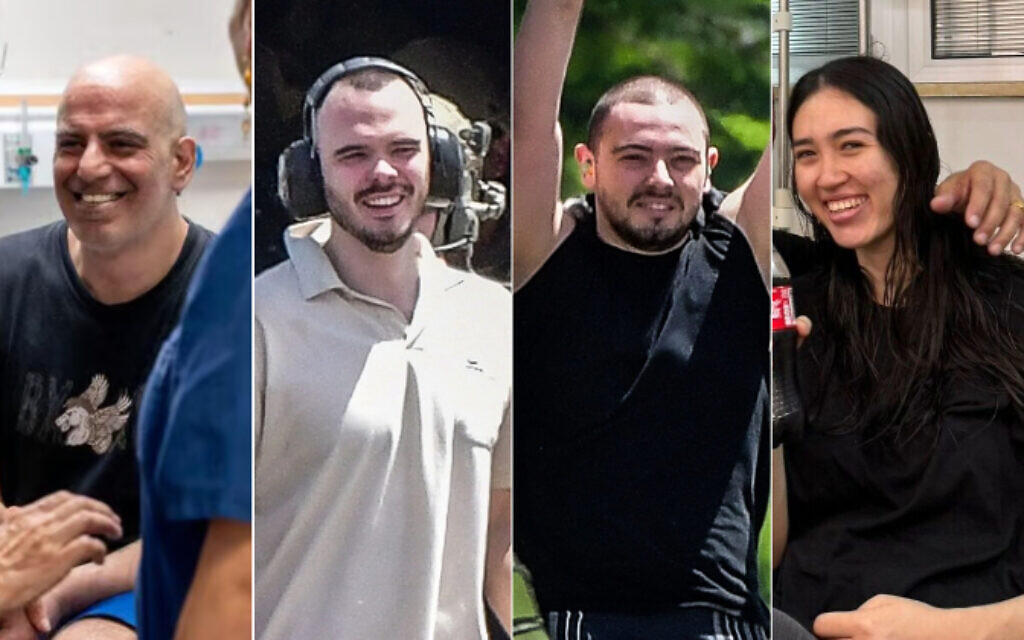



A Hamas member who held Israelis hostage in Gaza told the captives that the terror group was coordinating with “allies” on college campuses and in the media, according to a lawsuit filed in US court on Friday.
The lawsuit was filed by former hostages Almog Meir Jan, Andrey Kozlov and Shlomi Ziv. All three were taken from the Nova music festival in southern Israel during Hamas’s October 7, 2023, invasion of Israel.
They were held in Gaza by Abdallah Aljamal, according to the lawsuit and the IDF. Aljamal was a writer for the Palestine Chronicle, a news outlet run by the People Media Project, a US-based, tax-exempt nonprofit that is the focus of the lawsuit.
The hostages were rescued after 246 days in captivity in an IDF operation in June that also extracted hostage Noa Argamani, who was held separately nearby. Aljamal, his wife Fatima and his father Ahmad Aljamal were all killed during the hostage rescue mission. The family’s children survived.
Jan initially filed the lawsuit last year. The judge in the case filed a motion to dismiss the case last month, saying there was insufficient evidence to prove the defendants were aware that Aljamal was a Hamas operative. The judge allowed Jan to refile an amended complaint, however. The new complaint was filed on Friday, adding Kozlov and Ziv as plaintiffs. The lawsuit, backed by the National Jewish Advocacy Center, was filed in a federal court in Washington State, where the People Media Project is based.
The case argues that the Palestine Chronicle provided Aljamal with a platform to “disseminate Hamas propaganda,” providing material support to a US-designated terrorist organization, in violation of international law.
According to the amended complaint, Ziv said Aljamal “repeatedly expressed his hatred for the State of Israel and the United States,” and told the hostages that “Hamas was in contact and actively coordinating with its affiliates in the media and on college campuses.”
Aljamal told the hostages that “Hamas was going to ensure that the United States, as well as Jews and Israelis, are hated everywhere and that Hamas in Gaza was coordinating with its allies, including its allies in the media and on college campuses, to foment hatred against Israel and Jews,” the complaint said.
There were no further details about the cooperation between the terror group and campus protesters or the media.
The Palestine Chronicle was reporting about US campus protests around the same time, and in August 2024, published an article about Hamas leader Khaled Meshaal urging university students to protest.
Aljamal was previously a spokesperson for the Hamas-run labor ministry in Gaza. He was open about his affiliation with the terror group, appearing publicly in Arabic media as a spokesperson and posting Hamas graphics and photos of his son wearing a Hamas headband on social media. He began writing for the Palestine Chronicle in 2019 while still serving as a spokesperson for Hamas’s labor ministry, according to the lawsuit.
Aljamal appears to have had foreknowledge of the Hamas attack. On October 7, at 5:43 a.m., immediately before the invasion, he posted a message on TikTok that said, “O God, guide us.. O God, grant us the victory that you promised.. O God, acceptance, acceptance, acceptance.. Your victory, O God,” followed by a heart emoji.
Later in the day, Aljamal praised the attack on Facebook.
He began writing for the Palestine Chronicle more frequently after the attack, sometimes publishing multiple articles per day, while he was holding the Israelis hostage and communicating with the outlet’s staff in the US.
His social media activity, personal correspondence with the defendants, and public position with Hamas meant that the defendants were aware of his connections to the terror group, the lawsuit argues.
Defendant Ramzy Baroud, the editor-in-chief of the Palestine Chronicle and head of the People Media Project, and Aljamal are from the same town in Gaza and in 2017, co-authored an article for Al Jazeera.
Immediately after the hostage rescue, the Palestine Chronicle changed Aljamal’s description on its website from “correspondent” to “contributor,” then later described him as a “freelance contributor” writing on “a voluntary basis.” It also eulogized him in an article after his death, calling him a “well-known journalist murdered in Gaza,” and denied that he had been holding the hostages.
The hostages were aware that Aljamal was communicating with terror groups, recording footage and writing about their own captivity, the complaint said. All three were “terrorized” during their captivity, subjected to arbitrary punishment, physical threats, and physical and psychological abuse, the lawsuit said.
The outlet’s tax-exempt status means US taxpayers were subsidizing Hamas propaganda published to a US audience, the lawsuit argues, adding that the salary he was paid also helped him imprison the hostages.
The Palestine Chronicle and lawyers for the defendants did not immediately respond to a request for comment.


